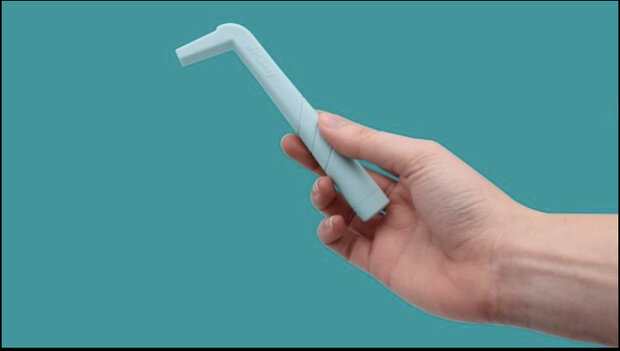According to the Live Science website, Dr. Ali Seifi, an associate professor of neurosurgery and the director of neurocritical care at the University of Texas Health Science Center at San Antonio is the leader of the team that conducted the research to invent the device for hiccup strikes.
"Many patients with brain injury, stroke, and cancer chemotherapy patients get hiccups on my floor," Seifi told Live Science in an email. For example, one of his patients developed hiccups after undergoing neurosurgery and became increasingly frustrated as the nurses helped him through various remedies, such as drinking from the far side of a cup. Just days later, Seifi got hiccups while delivering a speech to medical students, and in that frustrating moment, he "really decided that I have to find a definite, but simple solution," he said.
So Seifi invented a device called the forced inspiratory suction and swallow tool, or FISST. (He has also patented the tool and branded it under the somewhat catchier name "HiccAway.") The device is a rigid plastic tube with a mouthpiece on one end and a pressure valve on the other. The user operates the tool by placing it in a half-full glass of water, "forcefully" sucking water through the mouthpiece and then swallowing the liquid.
When people use FISST, "the hiccups are usually expected to stop instantly in one to two attempts," the team wrote in their report.
To put the device to the test, the researchers ran a crowdfunding campaign in 2020 in which volunteers could receive a free FISST to try. In all, 249 participants took part in the study and completed questionnaires in which they rated their experience on a scale from 1 to 5, with 1 meaning "strongly in favor of home remedies" and 5 meaning "strongly in favor of FISST." The participants also rated their satisfaction with the product, in terms of its feasibility compared with home remedies.
More than 69% of the participants reported having hiccups at least once a month, with most bouts of hiccups lasting less than two hours. More than 90% of the participants rated FISST as superior to home remedies, in terms of both effectiveness and feasibility. These ratings were consistently high regardless of a given participant's hiccup frequency or duration.
While the results hint that FISST works better than other hiccup-relieving tactics, the study is limited in that it relied on subjective rating scales and lacked a control group, meaning a group of individuals who did not use the tool, the authors noted.
"Future studies will need to assess the efficacy of FISST in randomized clinical trials," in which one group gets a sham device, while the others test the real one, they wrote. Seifi noted that the team has already initiated such trials in the U.S., Japan and Switzerland.
KI/PR





















Your Comment